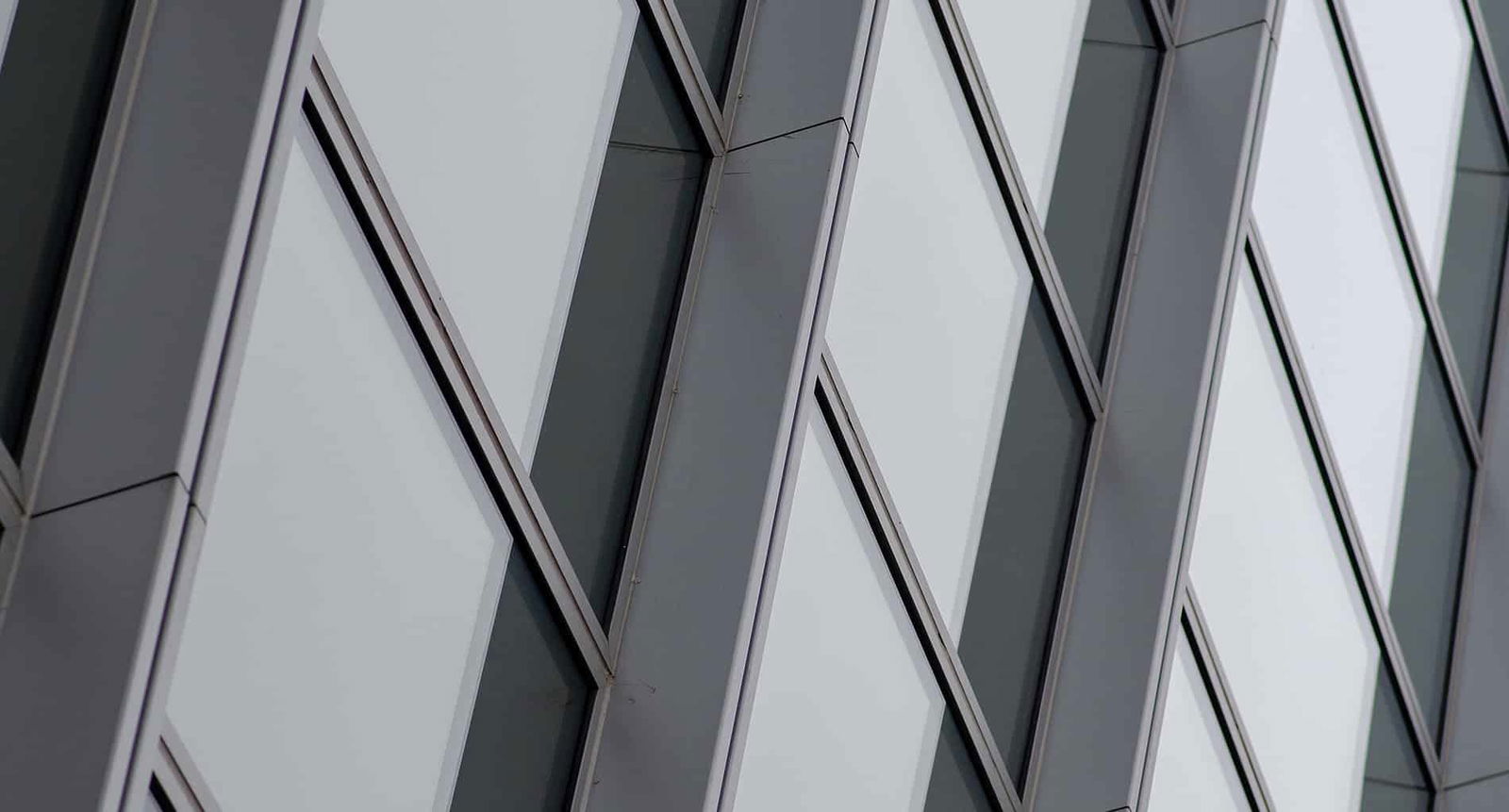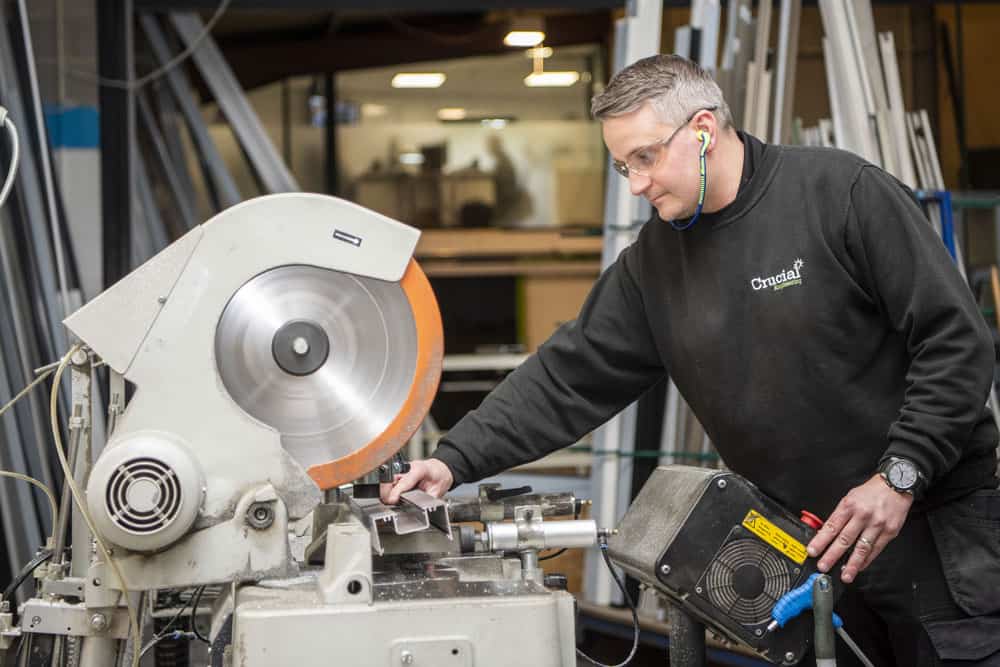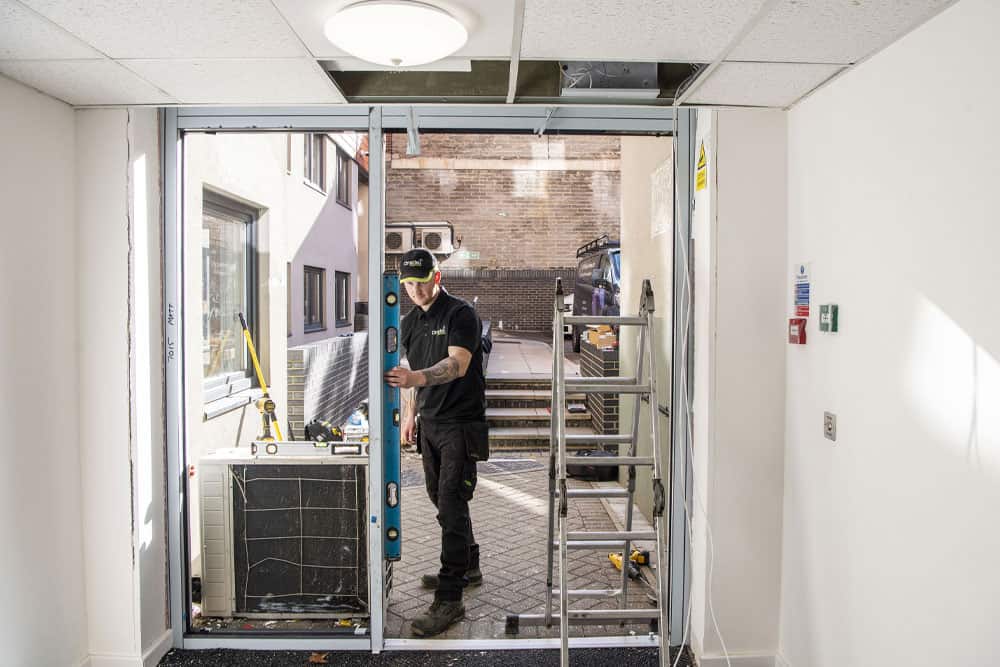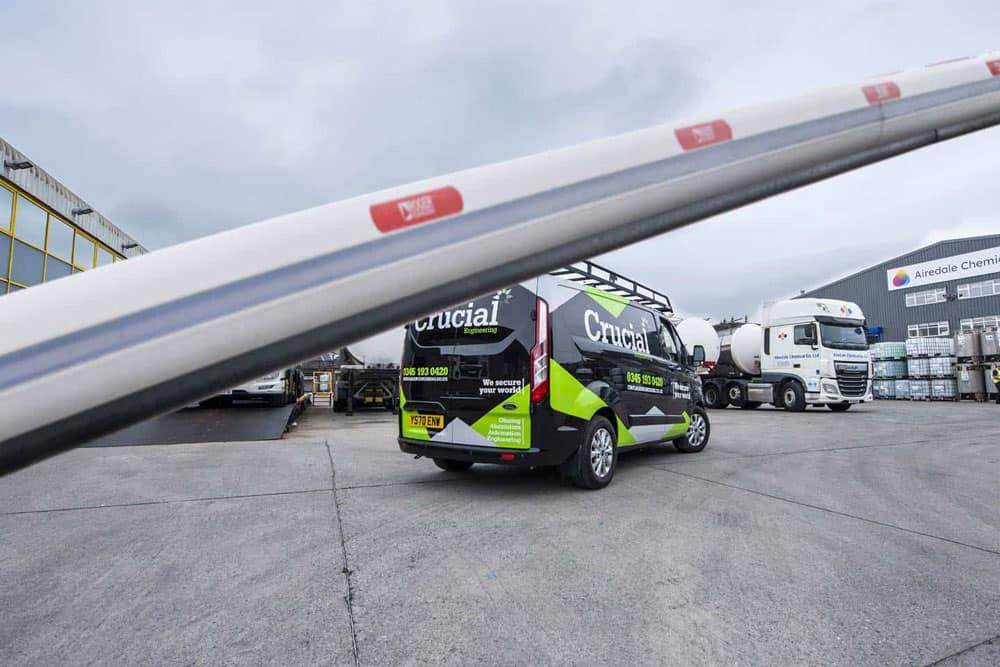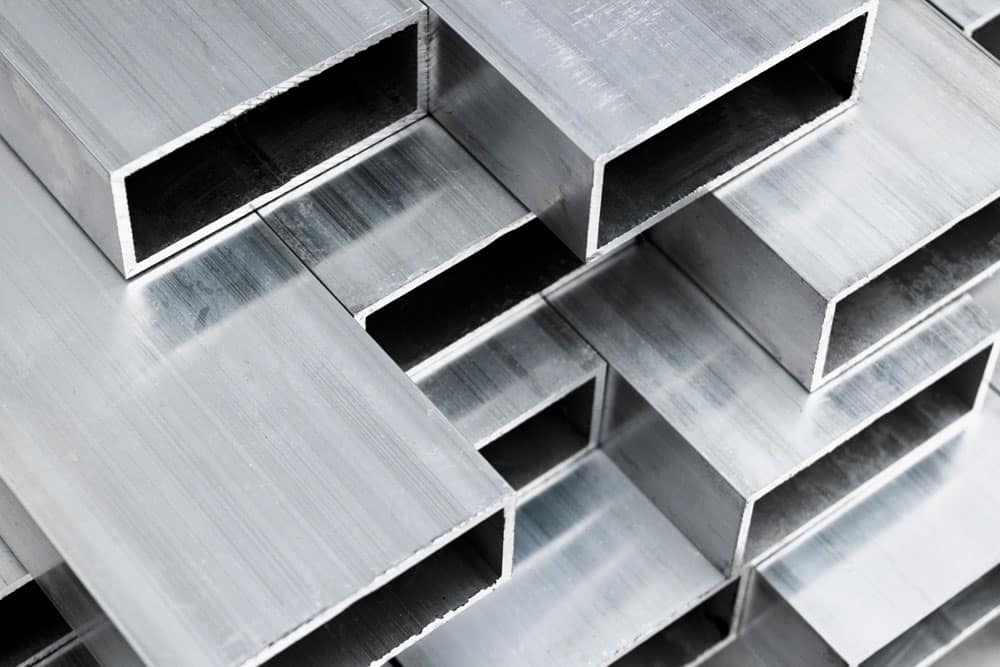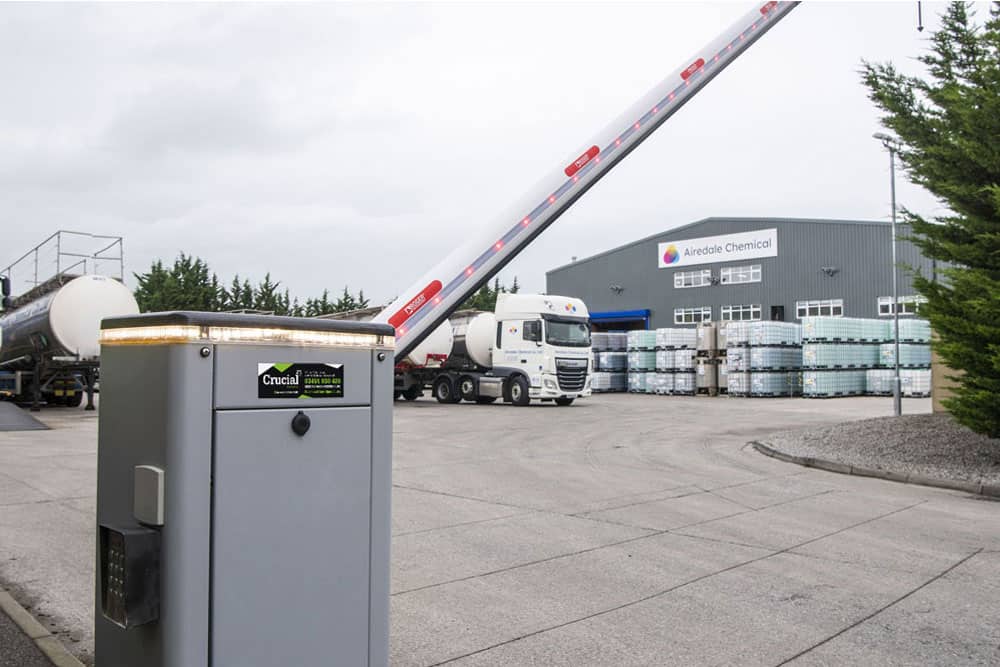What are the Structural Requirements of a Curtain Wall System?
Before we go into what the structural requirements of a curtain wall system are, let’s talk about what a curtain wall system actually is. A non-load-bearing exterior wall system designed to provide a protective barrier and support the weight of its own components, a curtain wall system is not there to provide support for any other part of the building it is part of. Its own components might include glazing, panels, and framing. Aluminium curtain walling is a popular choice for architects when designing the facades of buildings. Because of their versatility, a curtain walling system can be used for a wide range of buildings, including vast spaces and curved shapes. However, there are some very specific structural requirements for a curtain wall system, which we can deconstruct as follow.
The Importance of Load Resistance
For safety, security and durability, a curtain wall system must be able to resist various types of loads. These could include wind loads – think hurricanes and storms, dead loads (the weight of the system itself) or live loads – think snow, hailstone or even people leaning on the glass. One factor that is of particular importance in areas where there are regular tremors or earthquakes – such as California or Japan – is the seismic load. These are highly populated areas, which makes them higher risk for fatalities. But they also have some of the most beautiful and modern architecture in the world, some of which have huge curtain wall systems incorporated into them. A curtain wall system should be designed to transfer all these types of loads safely to the building’s structure.
Testing Strength and Stiffness
A curtain wall system needs to possess sufficient strength and stiffness to maintain its structural integrity and resist deformations. Being able to withstand a variety of wind pressures, temperature changes, and other external forces without excessive deflection or movement is essential. One of the biggest benefits of an aluminium curtain walling system is its superior strength whilst at the same time, being aesthetically pleasing.
Water and Air Infiltration Prevention
When designed correctly, a curtain wall system should prevent the penetration of any moisture and air into the building interior. Its construction will include effective weather seals and barriers to ensure that water and air do not compromise the building envelope. Even if a small amount of moisture is allowed in through the system, it can cause longer term, very expensive damage so this part of its design is paramount.
Measuring Thermal Performance
To maintain a comfortable indoor environment and improve energy efficiency, a curtain wall system should provide adequate thermal insulation. This helps minimise heat or cold transfer between the interior and exterior of the building. Of particular importance with this is in establishments such as hospitals and hotels, where people are vulnerable or sleeping.
Essential Fire Resistance action
Depending on the health and fire safety regulations for a particular building or establishment, curtain wall systems may need to meet certain fire resistance requirements. This is taken care of by involving the use of fire-rated glass, fire-resistant materials, and fire-stopping elements within the system. Fire safety is of the utmost importance for the majority of businesses today so ensuring this structural element is usually established during any preliminary design outlines.
Enhanced Acoustic Performance
In some cases, curtain wall systems may need to provide sound insulation to reduce noise transmission from the outside environment. Buildings located in noisy urban areas such as hotels, office blocks or shops will have this as an essential requirement. In addition, any buildings that are located near transportation routes such as an airport or train station will benefit from soundproofing as part of their design.
Durability, Maintenance and Accessibility for the Long Run
A curtain wall system should be designed to withstand long-term exposure to environmental factors, such as ultraviolet (UV) radiation, temperature fluctuations, moisture, and pollutants. Durable materials – such as aluminium, and protective coatings are often used to enhance the system’s longevity. The ease of maintenance and repair of the curtain wall system should also be a consideration and access to the exterior for cleaning, inspection, and maintenance should be provided without compromising safety.
Crucial Engineering – Curtain Walling Experts
Are you are planning on a refurb for the exterior of your building? Or commencing design of a new building and are considering the inclusion of a curtain wall system? If so, it’s important to note that the very specific requirements of a curtain wall system mean that you should, without doubt, consult with design professionals, including architects, structural engineers, and curtain wall specialists. At Crucial, we are experts with decades of experience in curtain walling systems and can ensure compliance with the applicable standards and regulations. As well as providing a friendly, reliable service, we support our clients with every step of an installation and have an award winning team of engineers. Contact us today to talk through your requirements.
Why is aluminium the material of choice in the commercial sector
Aluminium is now widely used throughout the building industry due to a series of natural properties and commercial benefits. It has become the dominant material in many aspects of building construction because of its flexibility and ability to meet highly custom requirements.Many new building developments including office space, public buildings and shopfronts will now feature aluminium throughout the structure including aluminium windows and doors, roofs and walls. It could also be the dominant material in stairs, railings, shelves and gates - plus many other applications.
This is due to the benefits that aluminium offers in building construction:
Aluminium is lightweight and strong
Aluminium has an excellent weight to strength ratio so it’s ideal for many purposes. Aluminium window frames are thin but also incredibly strong so they can comfortably and securely hold large windows in place. This makes aluminium ideal for modern building design including curtain walling and entrance doors.
Due to the strength of aluminium doors and windows, frames can be made much thinner than more traditional materials such as timber or PVC. This allows more space for glazing which brings further benefits such as increased natural light and eye-catching aesthetics.
Create a modern and eye catching building design
The fact that aluminium looks fantastic makes it an extremely popular material with architects and building designers. Adding aluminium window frames and doors instantly creates the look of an incredibly modern building with clean lines and flexible finishes.
This gives building designers much more freedom to create original structures that can include imaginative curves and angles. Aluminium is flexible enough to bring any idea to life and can be coloured matched to perfectly fit with a company’s branding.
Aluminium is naturally resistant to outside elements
Aluminium naturally has weather resistant properties which makes it highly durable compared to other materials. Timber and other materials are likely to warp or change shape when exposed to long periods for direct sunlight or moisture from rain.
Changes in shape such as warping or damage from corrosion can firstly make doors and windows hard to open, but can also lead to expensive repairs and maintenance. Once manufactured and installed Aluminium will look great and not lose quality with only minimal checks.
Aluminium can be recycled without losing quality
If a commercial building development is conscious about its impact on the environment then aluminium should be the material of choice. Not many people know that aluminium is 100% recyclable and can be re-used for any application many times without losing quality.
Using sustainable materials is important in today’s society and the use of aluminium is a guaranteed way to reduce the overall carbon footprint.
Aluminium increases energy efficiency
Aluminium is not only fantastic at keeping elements out, it is also a fantastic insulator so will keep heat in, and make indoor temperature regulation much easier. So in addition to low maintenance, this makes it highly cost effective through further cost savings from reduced energy costs.
The team at Crucial Engineering are national commercial aluminium fabricators. We manufacture, install and maintain commercial aluminium products to create high quality and secure access solutions. When you work with us you can be sure of a fantastic long term relationship including expert aluminium fabrication services alongside the very best customer service.
Top benefits of aluminium doors for commercial buildings
Commercial aluminium doors are now one of the most popular choices for building installations, and for good reason. If you’re involved in any kind of industrial or commercial property development then you’re likely already familiar with aluminium doors.When it comes to building aesthetics it’s surprising how often the entrance doors are overlooked. Entrance doors to any retail business or office block are not just a pathway in and out, they can also have a positive (or negative!) impact on things like ventilation, available space and general building design. The doors can very much set the tone of any building and you’ll want to make a bold statement.
Aluminium offers a series of advantages when compared to other materials. As a leading aluminium door manufacturer, we’ve put together the top benefits of investing.
1. Aluminium doors are strong whilst also being lightweight
Aluminium offers an excellent strength to weight ratio compared with virtually any other materials used for manufacturing doors. This makes it an excellent choice for any business premises as it can withstand a fair bit of punishment without showing signs of damage. It’s the go to choice for building designers or planners because it’s highly versatile and strong.
2. Aluminium is a highly durable material
Aluminium is not easily corroded. Changes in temperature as well as other outside elements such as wind and rain don’t have anywhere near the same effect as it has on other materials. Other options such as iron or wooden doors can easily change shape when exposed to the elements which quickly makes them hard to open and close.
Plus, continuous exposure to any moisture can result in the corrosion of iron or the warping of wood. These can lead to expensive repairs. With aluminium you don’t need to worry about these factors.
3. Aluminium doors are robust and provide high grade security
Aluminium doors introduce a robust and secure entrance to any commercial building. For enhanced protection, they can also be used in conjunction with aluminium windows or curtain walling. When compared to wood and or uPVC, aluminium doors really are the best option for security.
4. Aluminium doors are easier to maintain
Compared to most other materials, aluminium is easy to maintain. For example, wooden doors need to be regularly checked to prevent warping or rotting. Plus, any change in temperature can cause wood to expand or contract, which results in needing regular repairs. Iron doors can easily be corroded due to moisture, which again requires regular maintenance.
Aluminium does not require any polishing or painting and can be easily cleaned with a damp cloth. When you utilise aluminium doors there’s no need to worry about time consuming or costly maintenance.
5. Aluminium is the eco-friendly choice
In today’s eco-conscious society it’s important that any new commercial building or installation use sustainable materials where possible. The use of aluminium reduces the overall carbon footprint as it is 100% recyclable. It can also be reused many times over without losing any of the original quality.
The team at Crucial Engineering are aluminium fabrication specialists. We manufacture, install and maintain commercial aluminium products to create high-quality and secure access solutions.
Why you should use automatic car park barriers
By 2020, 68% of the UK’s working population commuted by car which is perhaps a surprising fact given the push in recent years towards having more accountability for our carbon footprints. And in the last 20 years, the number of cars on the road in the UK has increased by 5.5 million.. Understandably, the growth in the number of vehicles on the road has had the knock-on effect of a demand for more parking spaces.
The pursuit for appropriate parking exists for a variety of reasons. Be it a shopping trip in a City Centre, a visit to the hospital, a day at work or meeting a friend for lunch. Whatever the reason, most drivers will be all too familiar with the frustration of searching for a parking space which can be time consuming and in extremely busy locations, lead to an increase in fuel consumption. Here we examine a variety of car parking scenarios and the benefits of automatic car park barriers for both business and consumer.
The company car park
For most employees, having an allocated or private car park is a huge perk. It provides a safe and secure environment for their vehicle, removes stress and can offer time back in their day. As long as the entry and exit from it is easy.
For many companies, these car parks are controlled by a member of staff which then relies on them turning up to work, being on time, staying alert and being available. It also relies on them being able to check that the person trying to park has the correct ID and then if not, acquiring the appropriate permissions to allow them to enter. This can cause queues, a reduction in the turnover of parking spaces and huge frustration for workers. In this instance, the installation of an automatic barrier would be the perfect car parking solution.
Barrier systems are sturdy, safe and can be fitted with access controls to allow staff to enter and exit the car park with ease by scanning an ID card. Moreover, the longer term saving on investing in an automatic car park barrier vs staffing a car park is a of huge benefit to the business.
The pay and display car park
Everyone has been to a pay and display car park and driven around it for what seems like hours on end, only to find that there are no spaces and have to leave. Moreover, if you do find a parking space, there is the additional annoyance of then finding the pay machine, having the correct change, waiting for a slow contactless or credit card machine or having to download an app in order pay for your parking. Of which you have to estimate a time for. If you end up going over the allotted time, you are then required to either run back to pay for more parking or incur a fine.
The benefits of implementing automatic car park barriers here are huge for the consumer. The addition of traffic controls in this situation can provide the user with valuable information about space availability and whether it is worth waiting for a space. For people whom time is of an essence, such as those visiting a hospital or health centre, the use of an automatic barrier can provide more instantaneous information about whether they can or can’t park for a given amount of time or whether there are any available spaces. In addition, if their appointment runs over or they are in a waiting room for longer than expected, a ticket system which calculates the fee for parking upon exiting removes any stress about getting back for an allocated time.
The shopping centre car park
Many shopping centres or stores have complementary car parks for their customers. Some provide parking that is on a pay and display basis, sometimes with the addition of a traffic control warden or security cameras, recording the coming and going of every vehicle that enters and exits the car park. For the latter, many land owners are searching for more suitable car parking solutions in order to protect the profit from car park users.
Many drivers use these car parks without paying and displaying, particularly in car parks that don’t operate a security camera alongside them. An automatic car park barrier here would be a simple installation that would provide more safe and secure entry and exit to the designated parking areas. The initial investment of this type of parking system is worth it for the longer-term revenues from guaranteed customer payments.
Crucial Engineering
If you own a business and are looking for car parking solutions, get in touch with Crucial Engineering. Whatever industry your business belongs to, Crucial will be able to provide expert and sound advice. With a wealth of experience, and exceptional client recommendations behind them, they are an excellent choice. Contact us today to discuss your requirements in confidence.
The advantages of using aluminium in construction
Aluminium is quickly becoming the dominant metal used in exterior building design. Due to its lightweight properties and durability it’s now the ideal material for doors and window frames, along with modern exterior structures such as curtain walling. If you’re not familiar with its use then it’s now likely you regularly see examples of aluminium in a host of large or commercial building structures.
Aluminium is a natural occurring material that is readily available - it’s the third most common element in the Earth’s crust (after Oxygen and Silicon), and the most common metal on the planet. It's non flammable and resistant to corrosion.
These and other benefits of aluminium make it the number one choice in modern and efficient building design - and here’s why:
Highly versatile and flexible
Aluminium can be used in a wide variety of ways and can be efficiently engineered to meet specific requirements such as tight curves or colour choices. Working with aluminium will create fantastic aesthetics and gives architects and designers the freedom to create beautiful structures.
Aluminium introduces virtually limitless design potential and is flexible enough to bring any idea to life.
Lightweight and strong
Aluminium is a third of the weight of steel which makes it easier to both work with and transport. It’s also incredibly strong so is ideal for a host of purposes including features such as window frames as it will securely hold very large panes of glass. Due to the it’s strength, door and window frames can also be made thinner which can further boost the look of a building.
Long lasting and resistant to corrosion
Aluminium is a natural material and therefore has inbuilt resistance to inclement weather and corrosion that other materials lack. Other commonly used construction materials such as timber and steel can change shape when exposed to varying temperatures, or degrade from moisture or just have more limited lifespans – especially when not regularly maintained.
Once an aluminium solution has been engineered and installed it’ll not only look fantastic but it’ll also only need limited checks to maintain the same quality.
The environmentally friendly choice
The commercial construction trade is increasingly becoming more conscious of a project’s impact on the environment. Creating buildings that are “green” that both reduce waste and boost energy efficiency are vital – and using sustainable materials is a key part of this.
It’s not widely known that aluminium is 100% recyclable, and can be re-used for any purpose without losing much of the original quality.
Aluminium is also a fantastic insulator and will both withstand outside elements and keep heat inside, making indoor temperature regulation much easier and efficient.
The team at Crucial Engineering are a national commercial aluminium fabricator. We manufacture, install and maintain commercial aluminium products to create high quality and secure access solutions. When you work with us you can be sure of a fantastic long term relationship including expert aluminium fabrication services alongside the very best customer service.
Main benefits and uses of automatic barriers
Traffic barriers are a highly effective way to control the flow of traffic on any large industrial site such as factories or construction sites. They provide complete control for all types of vehicles and provide safety and security within any restricted areas.
Traffic barriers not only provide highly secure entrances to any premises, they’re also great for use at security checkpoints should they be required once a vehicle has already gained access to the main site.
Here we’ve put together the main benefits and uses of automatic barriers:
Benefits of automatic traffic barriers
1. Cost effective
Once installed, automatic barriers usually cost little to maintain and are long lasting. Plus, more cost savings can be made by reducing the need to pay personnel to constantly be present at site entrances. In many instances an effective barrier can literally replace the need to hire staff.
2. High level of security
A really common use of automatic barriers is to provide round the clock security. They’re essentially a physical barrier that prevents any unauthorised vehicles entering your premises. Alongside the barrier it’s also increasingly common to introduce other security measures such as voice intercom and remote control operating. It’s also possible to have a keypad so anyone with a code can easily open the barrier without the need to speak to anyone.
3. Very reliable
Most automatic barriers have very few moving parts which makes them very reliable as there’s little to go wrong. This reduces any burden you might think exists around maintenance or repairs.
Common uses for automatic traffic barriers
When people think of automatic barriers they tend to just think about their use in car parks, but they’re actually very versatile and can be used to meet different needs. So aside from controlling car parks, here’s some uses you may not have considered:
1. Control the flow of traffic
There are many reasons why the flow of traffic will need to be controlled through any business premises or construction site. You might need to simply have control of who enters, or perhaps restrict the number of vehicles that are on site at any time. Plus, if you expect large numbers of vehicles to leave at the same time they can control the flow to avoid accidents.
If you operate multiple traffic barriers within the same premises then they can also be programmed to work in sync to ensure the highest level of safety.
2. Keep a record of who’s entered
Any vehicle passing through your barriers will need to stop for a few moments which is more than enough time for an additional security system to scan the registration or take a picture. There could be many reasons why you specifically need to know who’s entered your site and when they left.
3. Prevent unwanted access
Automatic barriers are fantastic for preventing any unwanted vehicles entering your premises or site. Plus, if there’s a period where you’re not expecting anyone to arrive you can simply set the barrier to be permanently closed. This is great security both in and out of business hours.
